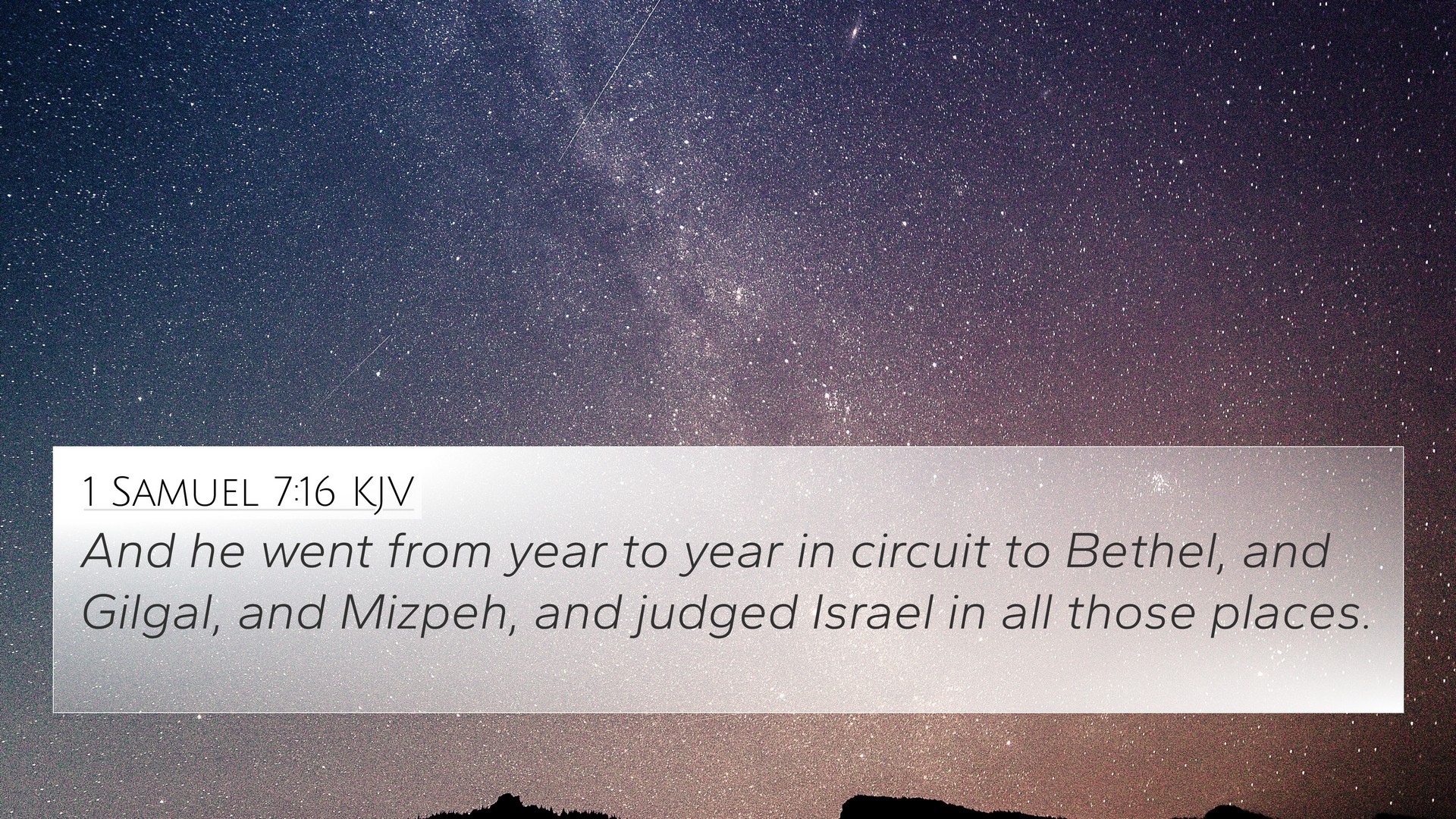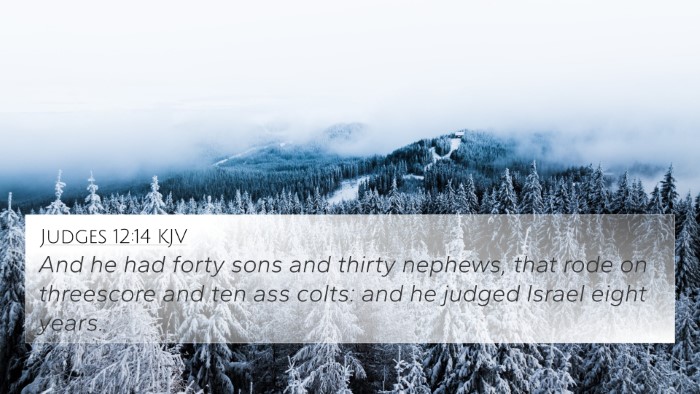Understanding 1 Samuel 7:16
1 Samuel 7:16 states: "And he went from year to year in circuit to Bethel, and Gilgal, and Mizpeh, and judged Israel in all those places." This verse highlights the role of Samuel as a judge who traveled to various locations to administer justice and guide the people of Israel. The following is a summary of insights from public domain commentaries on this passage, providing profound understanding through scriptural cross-referencing and thematic connections.
Insights from Commentaries
The commentary from Matthew Henry elaborates on Samuel’s commitment to serving his people, indicating that his annual circuit illustrates the diligence required of a leader. Henry emphasizes the importance of Samuel’s presence in different towns, which allowed him to be accessible to the people, reinforcing his role as a spiritual leader and judge.
Albert Barnes reflects on the significance of the locations mentioned - Bethel, Gilgal, and Mizpeh. Each site has historical importance in Israel's spiritual journey and covenant with God. By judging at these pivotal locations, Samuel not only administered justice but also reminded the people of their identity and relationship with God.
In the words of Adam Clarke, the verse also highlights the organization of governance under Samuel's leadership. His systematic approach to judging the tribes of Israel allowed for a more structured and fair judicial process. Clarke suggests that these travels served to unify the tribes, fostering a sense of community and collaboration among them.
Thematic Connections
The journeys of Samuel provide a basis for various thematic Bible verse connections. Key themes arising from this passage include:
- Leadership and Servanthood: Samuel exemplifies a leader who serves his people selflessly.
- Divine Guidance: His mobility signifies God’s continuous guidance through designated leaders.
- Justice and Righteousness: The act of judging reflects God’s desire for justice among His people.
- Community and Unity: By visiting multiple locations, Samuel fosters a spirit of unity among the tribes of Israel.
Cross-References and Biblical Parallels
This verse can be studied in connection with several other scriptures that delve into similar themes:
- Judges 2:16-19 - Discusses how God raised judges who delivered Israel from their oppressors.
- 1 Samuel 3:20 - Illustrates Samuel's reputation as a prophet and judge throughout Israel.
- Psalm 75:2 - Speaks of God’s appointment of judges and the times He establishes for justice.
- 2 Chronicles 19:5-7 - Provides insight into the judicial roles set by leaders in Israel.
- Matthew 5:14-16 - Speaks on being a light to the world, paralleling Samuel's role as a guiding figure.
- Hebrews 11:32 - Mentions Samuel among the heroes of faith, underscoring his significance.
- Acts 13:20 - Highlights Samuel's role in Israel's history and God's plan.
Tools for Cross-Referencing
To delve deeper into cross-referencing Biblical texts like 1 Samuel 7:16, one can utilize various tools and resources:
- Bible Concordance: Helps locate terms and their occurrences throughout Scripture.
- Cross-Reference Bible Study: A method to compare related verses for richer understanding.
- Bible Reference Resources: Various study Bibles provide built-in cross-references for easier study.
- Bible Chain References: A study method that connects verses on similar themes.
- Comprehensive Bible Cross-Reference Materials: Books and online tools specifically designed for extensive cross-referencing.
Conclusion
In summary, 1 Samuel 7:16 illustrates the dedicated service of Samuel as a judge and leader in Israel. The verse invites us to reflect on the qualities of righteous leadership, the importance of justice, and the unity of the Israelite communities. Through cross-referencing with related scriptures, we can gain a deeper understanding of its significance and application in our spiritual journey. By using various tools for Bible cross-referencing, believers can enhance their study and interpretation of Scripture.







